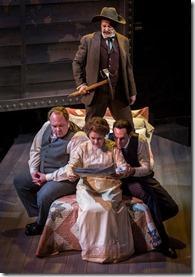
Road Show
Music and Lyrics by Stephen Sondheim
Book by John Weidman
Directed by Gary Griffin
Chicago Shakespeare at Navy Pier (map)
thru May 4 | tickets: $48-$68 | more info
Check for half-price tickets
Read review
Sondheim’s latest gets its due
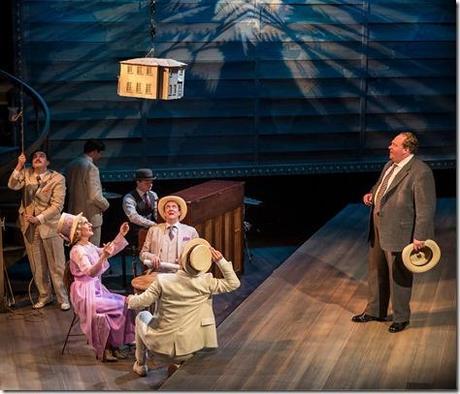
Chicago Shakespeare presents
Road Show
Review by John Olson
People with more than a passing interest in musical theater are certain to know something of the tortured journey of this musical. Composer-lyricist Stephen Sondheim says he was initially struck by the idea of creating a musical about the brothers Wilson and Addison Mizner after reading a biography of the two back in the early 1950’s. Sondheim became fascinated with the Mizners, who lived various places in the U.S. between the 1870s and 1930s and were minor cultural figures in the changing landscape of the early 20th Century. Addison became a successful architect, primarily of mansions in Florida, while Wilson had a variety of careers from playwright to boxing promoter. Though, Sondheim went so far as to even write an opening number for the musical he envisioned, it wasn’t until the mid-nineties that Sondheim set down in earnest to write the musical, recruiting his collaborator from Pacific Overtures and 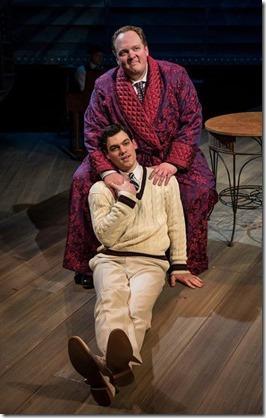
This newer version is shorter and more focused than its predecessor. A female love interest for Wilson has been dropped entirely, and emphasis placed on the brothers – primarily Addison, the architect. While both brothers had talent to spare, Addison’s talent for design was more singular, enabling him to make a lot of money designing mansions for wealthy Floridians. In contrast, Wilson’s gifts were multiple. Having a wit and way with words, he could charm men into nefarious business schemes and women into his bed; he could write plays and screenplays, and persuade suckers to part with their money. His questionable morals as well as drug addictions led him to ruin, and his ability to sway Addison (who was really doing quite fine on his own) into dishonest real estate deals in Boca Raton would bring down both of them. Addison’s downfall here is attributed to a desire to please and help his wayward brother as well as seek the posthumous approval of his deceased father, one of the last of the American pioneers. The focus of this new version is Addison’s waste of his talents and corruption by brother Wilson, with that theme set up by the opening number, “What a Waste,” set to the melody of the title song of Bounce.
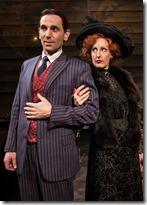
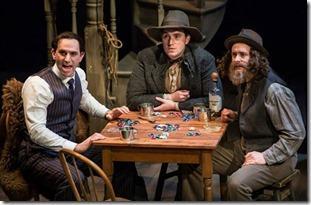
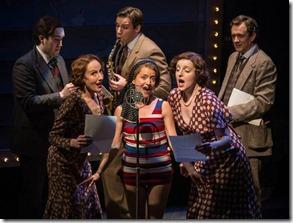
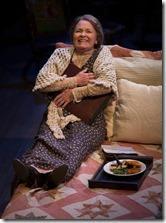
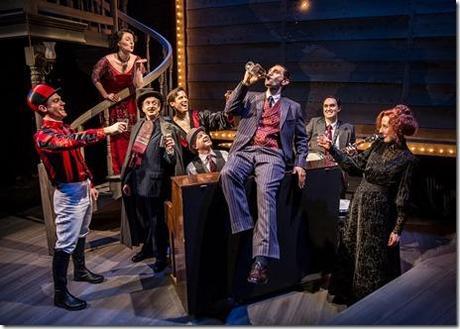
Griffin’s production, in the intimate space of the upstairs theater at Chicago Shakespeare, keeps us tightly focused on the brothers, with strong performances by Michael Aaron Lindner and Andrew Rothenberg that make clear choices about what sorts of people the brothers were. Rather than treating them as comic figures, the route director Harold Prince took with Bounce, these brothers are fully developed people. Lindner plays Addison as determined, yet insecure – very much needing approval of others. Rothenberg’s Wilson fits the description of his real-life figure as “a slimy, manipulative, irredeemable bastard” – an assessment attributed to George Abbott in Sondheim’s book, “Look I Made a Hat”. The charm Wilson Mizner must have had in order to con so many people is not as evident in Griffin and Rothenberg’s take, though it’s consistent with the show’s focus on Addison to make Wilson primarily an antagonist. Both leading men are superb singers as well as actors, as is the entire cast, performing Sondheim’s intricate music and lyrics with clarity and precision as well as emotion.
The leads are supported well by their cast mates. The handsome Robert Lenzi is Addison’s sweet and sincere young gay lover Hollis Bessemer. Lenzi does solid work on some of the show’s best songs, which include “You” and “The Best Thing That Has Ever Happened,” though he struggles a bit in the upper ranges of the music. Anne Gunn is a tough Mama Mizner and Larry Adams a pompous Papa, who first appears as on his deathbed and then frequently returns as a ghost to admonish Addison. Griffin works with a smaller cast than the off-Broadway production employed – with everyone but Lindner and Rothenberg playing multiple roles – but this works to the show’s advantage, presenting the brothers against the relief of all others. It also shows off the character talents of Derek Hasenstab, McKinley Carter, Jim DeSelm, Regina Leslie, Jake Mahler and Bri Sudia in creating clever minor characters, often switching between personas on just a moment’s notice. The cast, under the musical direction of Michael Mahler, does an impeccable job with the score. They’re usually accompanied by just a piano, though some of the actors briefly supplement the piano with turns on violin, flute and percussion (borrowing a technique employed by Doyle in his
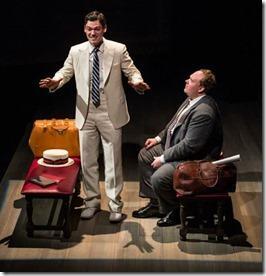
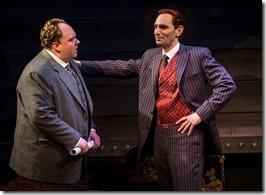
Rating: ★★★½
Road Show continues through May 4th at Chicago Shakespeare Theater, 800 E. Grand (map), with performances Tuesdays at 7:30pm, Wednesdays 1:30pm/7:30pm, Thursdays and Fridays 7:30pm, Saturdays 3pm/8pm, Sundays 2pm. Tickets are $48-$68, and are available by phone (312-595-5600) or online through their website (check for half-price tickets at Goldstar.com). More info at ChicagoShakes.com. (Running time: 1 hour 35 minutes, no intermission)
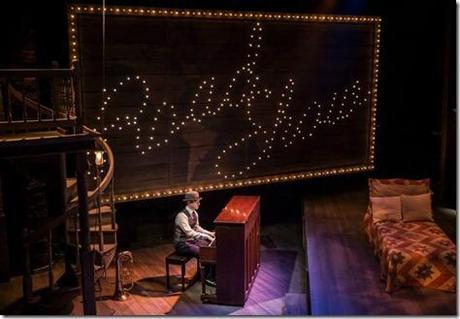
Photos by Liz Lauren
artists
cast
Michael Aaron Lindner (Addison Mizner), Andrew Rothenberg (Wilson Mizner), Larry Adams (Papa Mizner, ensemble), McKinley Carter (Myra Yerkes, Eva Stotesbury, ensemble), Matt Deitchman (piano, ensemble through April 20), Anne Gunn (Mama Mizner, Mrs. Cosden, Ethel Mudd, ensemble), Derek Hasenstab (Prospector, The Businessman, Paul Armstrong, Real Estate Agent, Edward Stotesbury, ensemble), Robert Lenzi (Jockey, Hollis Bessemer, ensemble), Regina Leslie (Sophie Wanamaker, Boca Girl, ensemble), Jake Mahler (Mr. Cosden, Excited Man, ensemble), Bri Sudia (Mrs. Trumbauer, Mary Monahan, ensemble), Tom Vendafreddo (piano, ensemble beginning April 22).
behind the scenes
Gary Griffin (director). Michael Mahler (musical director), Scott Davis (scenic design), Mara Blumenfeld (costume design), Greg Hofmann (lighting design), Ray Nardelli (sound design), Melissa Veal (wig and make-up design), Mitzi Hamilton (choreography), Rick Fox (music direction and additional orchestrations), Bob Mason (casting), Stephanie Klapper (New York casting), Rebecca Goldstein-Glaze (production stage manager), Liz Lauren (photos)
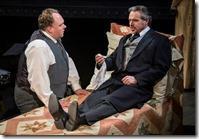
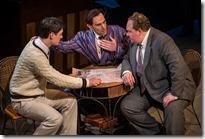
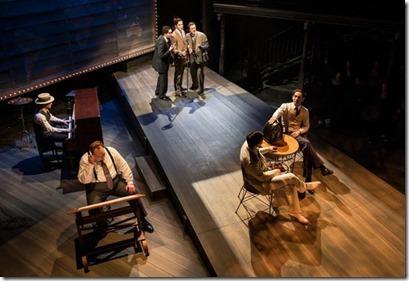
13-0348

